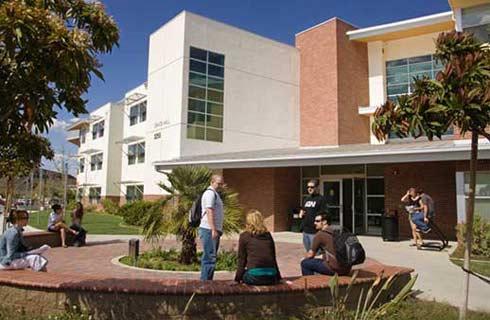统计学哲学博士
Doctor of Philosophy in Statistics

学历文凭
Ph.D.

专业院系
Department of Statistics and Actuarial Science

开学时间

课程时长

课程学费

国际学生入学条件
A U.S. bachelor’s degree from a regionally accredited college or university, or an equivalent degree from another country as determined by the Office of Admissions with a minimum grade-point average (GPA) of 3.00.
English Language Requirements:
An IELTS (International English Language Testing System) total score of 7.0, with no sub score less than 6.0.
TOEFL score requirements with score of 81 or higher on the Internet-based version of the test (iBT) and newly admitted graduate students who present iBT scores below 100 on the PBT.
TOEFL score requirements with score of 550 on Paper-based test (PBT) and newly admitted graduate students who present TOEFL scores below 600 on the PBT.
IDP—雅思考试联合主办方

雅思考试总分
7.0
- 雅思总分:7
- 托福网考总分:81
- 托福笔试总分:550
- 其他语言考试:DuoLingo (DET) - Score of 105+
CRICOS代码:
申请截止日期: 请与IDP联系 以获取详细信息。
课程简介
Graduates will be able to have a solid understanding of the mathematical and statistical theory that underlies statistical methods, conduct literature reviews to summarize the state of the art for specific theoretical and applied topics, formulate, implement, and assess appropriate statistical models for analyzing data, identify limitations of existing methods and independently develop and assess novel methods (e.g., for analyzing new types of data), appreciate the issues of uncertainty, reproducibility, and computability in data analysis, collaborate with non-statisticians to help collect and analyze data and acquire effective communication skills for disseminating statistical findings.
相关申请
 预科
预科 奖学金
奖学金 实习机会
实习机会 在校学习
在校学习 跨境学习
跨境学习 校园授课-线上开始
校园授课-线上开始 在线/远程学习
在线/远程学习
开学时间&学费
学费信息仅供参考,请与IDP联系以获取详细信息
| 开学时间 | 时长 | 学费 | 地点 |
|---|
学校排名

世界排名201
数据源:
泰晤士高等教育世界大学排名
关于爱荷华大学

爱荷华大学坐落于美国中部的爱荷华州东部的一个小城——爱荷华城。爱荷华大学现有超过29000名学生,其中64%来自艾奥瓦州,21%来自周边各州。她也招收大量国际学生,分别来自109个国家和地区,占全校总人数的7%。爱荷华大学在医学、基因、水力学、语言听力,专科方面世界闻名,同时在农业医药、生物分析、生物工程、生物医学,药理学等领域有重要的创新。她在听力学、版画制作、写作、言语病理学、护理服务管理等方向有世界一流的研究生教育项目。以为代表的该校科学家是美国空间科学研究的开创者。他们设计和建造的研究设备被超过50个美国人造卫星和空间探测器使用。该校下属的医院已经连续十多年被评为美国最好的医院之一。该校的工程学院发展了世界领先的高级驾驶模拟器。同时爱荷华大学的医学专科是全世界著名的,已经连续17年被评为全美最佳医院。该校是全美最早开设精算专业的大学之一,在业界有着丰富的校友资源,仅2000年之后取得北美精算师(FSA/FCAS)头衔的该校校友已经超过百人。爱荷华大学位于爱荷华州西南的爱荷华市,紧邻爱荷华河而建,校园占地 1900 英亩,是美国重要的公立研究院校。 爱荷华大学共有 11 个院系,文理学院最大,占每年本科招生的最大比例。 亨利.B.特彼商学院、罗伊.J和露西尔.A.卡弗医学院及教育系、工程系、法律系、护理系、药剂系也都招收本科生。牙医系和公共健康系与研究生院一起,提供研究生教育。
本校相关课程
其他相关课程

Bachelor of Science in Mathematics - Statistics
 伊利诺伊州立大学-INTO USA
伊利诺伊州立大学-INTO USA学历文凭
Bachelor Degree
开学日期
课程费用总额


数学哲学博士-统计
 南佛罗里达大学
南佛罗里达大学泰晤士高等教育世界大学排名:395
学历文凭
Ph.D.
开学日期
课程费用总额


应用统计学哲学博士
 圭尔夫大学
圭尔夫大学学历文凭
Ph.D.
开学日期
课程费用总额


Master of Science in Applied Statistics
 德保罗大学
德保罗大学学历文凭
Masters Degree
开学日期
课程费用总额


数理统计学士(荣誉学位)-统计
 新不伦瑞克大学
新不伦瑞克大学学历文凭
Bachelor Degree with Honours
开学日期
课程费用总额


Bachelor of Science in Statistics
 华盛顿大学
华盛顿大学泰晤士高等教育世界大学排名:25
学历文凭
Bachelor Degree
开学日期
课程费用总额
















